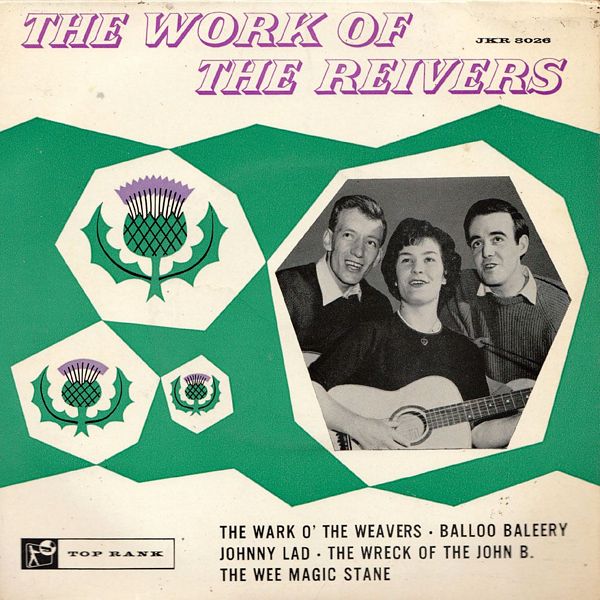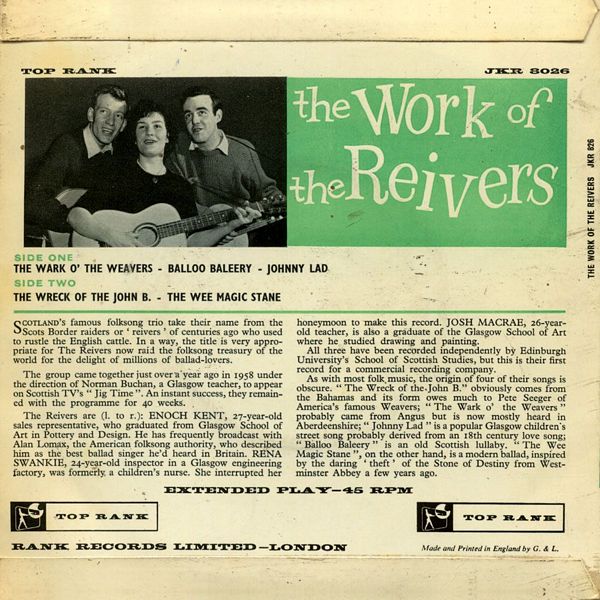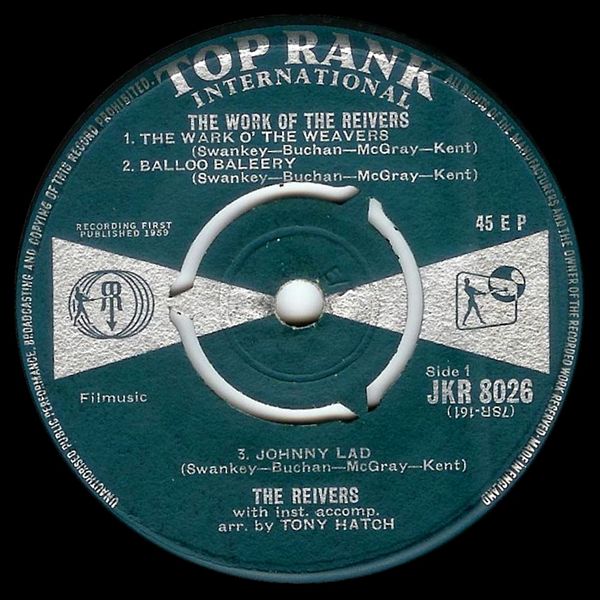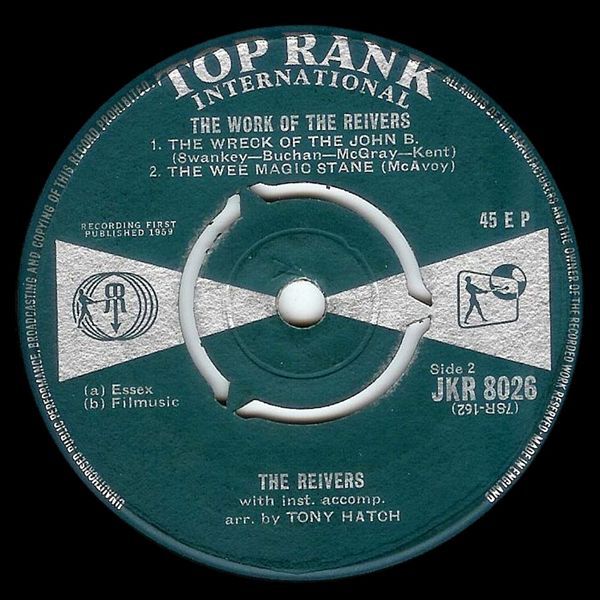
 |



|
Sleeve Notes
SCOTLAND'S famous folksong trio take their name from the Scots Border raiders or 'reivers' of centuries ago who used to rustle the English cattle. In a way, the title is very appropriate for The Reivers now raid the folksong treasury of the world for the delight of millions of ballad-lovers.
The group came together just over a year ago in 1958 under the direction of Norman Buchan, a Glasgow teacher, to appear on Scottish TV's Jig Time. An instant success, they remained with the programme for 40 weeks.
The Reivers are (l. to r.): ENOCH KENT, 27-year-old sales representative, who graduated from Glasgow School of Art in Pottery and Design. He has frequently broadcast with Alan Lomax, the American folksong authority, who described him as the best ballad singer he'd heard in Britain. RENA SWANKIE, 24-year-old inspector in a Glasgow engineering factory, was formerly a children's nurse. She interrupted her honeymoon to make this record. JOSH MACRAE, 26-year-old teacher, is also a graduate of the Glasgow School of Art where he studied drawing and painting.
All three have been recorded independently by Edinburgh University's School of Scottish Studies, but this their first record for a commercial recording company.
As with most folk, music, the origin of four of their songs is obscure. The Wreck of the John B. obviously comes from the Bahamas and its form owes much to Pete Seeger of America's famous Weavers; The Wark o' the Weavers probably came from Angus but is now mostly heard in Aberdeenshire; Johnny Lad is a popular Glasgow children's street song probably derived from an 18th century love song; Balloo Bakery is an old Scottish lullaby. The Wee Magic Stane, on the other hand, is a modern ballad, inspired by the daring ' theft ' of the Stone of Destiny from Westminster Abbey a few years ago.